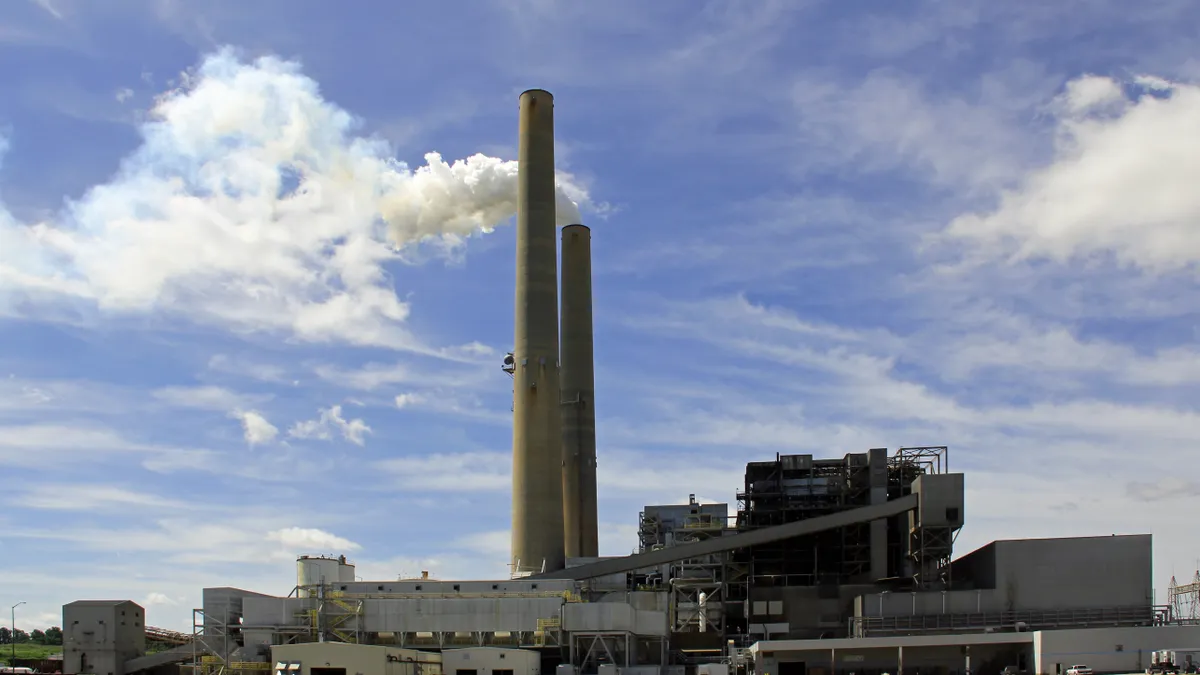Dive Brief:
-
Indiana's Office of Utility Consumer Counselor (OUCC) on Monday urged the state's utility regulators to reject Vectren Corporation's plan to construct a natural gas plant, install emissions controls at one of its coal plants and retire its other four coal plants by 2023.
-
Vectren proposed the nearly $900 million plan in February, which includes a combined cycle plant capable of generating between 800 MW and 900 MW to replace the retired coal units. The power plant was projected to cost $781 million and the coal emissions technology was estimated at $95 million.
-
After reviewing the plan, the OUCC determined the utility had "not fully evaluated all viable options for meeting its electric customers' future power supply needs."
Dive Insight:
Vectren projects its generation plan will reduce the utility's carbon emissions by 60% as a part of its larger Integrated Resource Plan, developed in 2016. However, the plan did not stand up to the OUCC's scrutiny and now the utility has until September to file rebuttal testimony.
"Any electric utility that seeks to overhaul its generation fleet today must evaluate all possible options. It must also carefully examine the ways the options would impact its customers in terms of both money and electric reliability," Indiana Utility Consumer Counselor Bill Fine said in a press release. "In this case, Vectren has not evaluated all options or shown that it is proceeding in the most prudent manner."
The OUCC is not the only critic of the plan, according to Courier & Press. Opponents ranged from environmentalists and ratepayers calling for the utility to use more renewables, to coal advocates who say Indiana has an "abundance" of coal and should take advantage.
The OUCC said its analysis of the Vectren plan found it inadequate on four grounds:
-
The utility didn't consider extending the coal plants' viability past 2023.
-
The utility didn't fully examine repowering two of its coal plants as gas generators, which the OUCC believes would be cheaper.
-
Vectren's electricity demand is increasing and the utility has "a surplus of produced electricity even after serving its peak load."
-
The plan would not diversify the utility's fuel mix and would incur unnecessary risks onto consumers.
Vectren told Indiana media outlets did explore the alternative options thoroughly and that the costs of the projects the OUCC suggests would be higher for customers in the long run. It also says the its proposal's fuel mix would be the most cost effective and that it plans on selling its production surplus to other utility companies, using half those sales to reduce customer bills.














